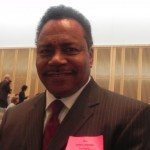The San Jose City Council on Tuesday delayed declaring a fiscal state of emergency and instead instructed city staff to produce a cost analysis of various pension reform plans that are aimed at reducing benefits. Staff members were also directed to meet with unions to explore solutions.
The council voted 8-3 to return on June 21 to declare a fiscal state of emergency, which would allow them to amend pension benefits. The council also asked staff to craft language for a ballot measure that will require voter approval for future pension increases.City officials say that without drastic pension reform, San Jose will spiral into financial insolvency. They clearly indicated that they are willing to declare a fiscal state of emergency in spite of legal risks and strong opposition from its work force.
Reed said that if the pensions go unchecked, by, the city will have to reduce staffing to about 3,000 employees. The city currently has about 5,000 employees.
Reed and the council have long blamed escalating pension costs as the largest contributor to 10 years of budget shortfalls. They estimate pension costs will climb to $400 million in five years.In order to balance thebudget, the city has proposed laying off 600 employees, including 195 police officers and neighborhood libraries will only be open three days a week.
Reed’s proposals include capping the city’s contribution to retirement benefits for new employees, raising retirement age to 60 for public safety workers and 65 for other employees and raising the eligibility for retiree health care benefits.
Council members Ash Kalra, Kansen Chu and Xavier Campos voted against the mayor’s plan to declare a fiscal emergency, warning that the likely litigation will cost millions that the doesn’t have and still not achieve the necessary reforms.
“What we need to do to avert fiscal and social disaster is to work together to solve this problem,” Kalra said. “Going down this legal path is going to end in a real fiscal disaster and is the wrong way to go.”
But Vice Mayor Madison Nguyen urged the council to make tough decisions now to restore services to residents in the future.
Nguyen said she doesn’t want to tell her constituents that “next year, your branch library will open every other day. The following year? Very sorry but your library will be open one day a week. That’s worse than a Third World country.”
“The modifications we made are not intended to punish city workers,” Nguyen said to an audience that reacted with laughter and jeers. “It’s not an attack on city employees.”But most of the dozens of speakers who testified before the council, including a Wisconsin senator brought to San Jose by the South Bay Labor Council, accused the council of trying to balance the budget on the backs of city employees.
“Don’t do it,” Senator Spencer Coggs of Wisconsin said to Reed. “Your proposal overreaches. You have other avenues. Don’t’ be a Democrat in name only.”
Yolanda Cruz, president of AFSCME MEF, the city’s largest employees union, also spoke at the meeting.
“A single solution is not only unfair but downright irresponsible,” Cruz said. “Not one of you, including you mayor, have any idea of what you’re asking for.”
“None of us want to live in a Third World country,” said San Jose resident Mark Ruffling. “We don’t want to shut down libraries or community centers. But it takes two sides to fix the problem. “
But Reed appeared resolute in fixing the pension problems.
“If some of our unions refuse to talk to us about changes in retirement we’ll have to move ahead without them,” Reed said. “But we welcome the opportunity to for them to engage with us and our professional staff to help us find a way out of these problems.”


